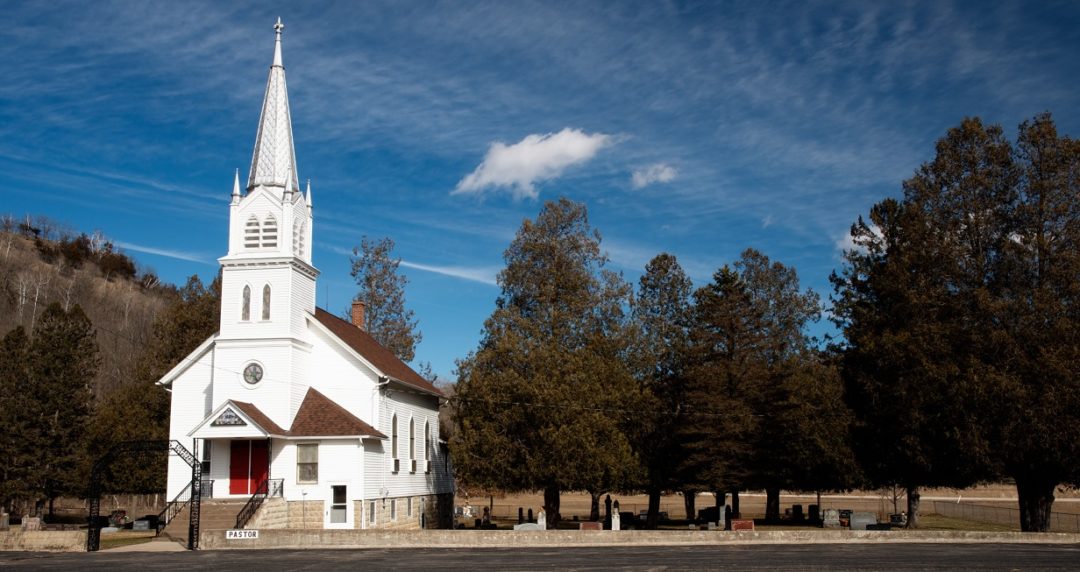My partner and I were taking our usual walk around our apartment complex and through the woods around it when I announced that I wanted to go to seminary. I had been thinking about it for a while, but by that evening I was sure that’s what I wanted. When he asked why I had several answers ready, and one of the most significant was that I wanted to formally study theology. As a lay person and average church goer I’d been obsessed with different theological subfields my entire life (bibliology being at the top of that list), and I wanted to engage one of my passions in an academic context. I wasn’t satisfied with approaching it through the “accessible” and “popular” texts anymore, but I didn’t know how to wade through the ocean of theological works and contexts on my own. I wanted the hand-holding, the guidance, that a solid seminary would give me.
One of the things that brought me to that reason was the church we’d been attending at the time. The head pastor had never gone to seminary, had no real intention of going to seminary, and I felt that a lot of my frustrations with his sermons stemmed from that. Often he’d include something I knew to be wildly inaccurate (but a popular myth among evangelicals) in his interpretations, or as illustrations, and I felt that a seminary education would have prevented some of that.
I was also in a two-year class the church offered called “The Theology Program.” Interestingly, I’d found the classes helpful in deconstructing fundamentalism even though the video instructors were themselves fundiegelicals who’d graduated from Dallas Theological. While I wildly disagreed with most of their conclusions and thought many of their arguments against “heresies” were strawmen, the act of going through a historical look into the Christian tradition and touching on most of the significant theories was informative. It gave me the words and the tools to go looking for things on my own.
One of the things I picked up from the instructors, though, was a condemnation of “folk theology.” Their use of that term was fairly loose, and generously applied– basically anything that didn’t belong in one of the major systematic theologies was “folk theology.” Essentially, if something you believed wasn’t straight-up Wesleyan, Calvinist, Catholic or in one of the catechisms (like the Westminster Catechism), then it was “folk theology.” In a way, this made sense to me. My experiences had showed me the harm that can be caused by reckless, inconsistent, pick-and-choose theological structures. I didn’t assume that every “systematic theology” was immune from problems because it was supposedly all-encompassing, holistic, and internally consistent; however, I thought systematic theologies had value because they at least had the benefit of being well thought-out.
I started seminary a few months before the election, and threw myself headfirst into as many theology classes as I could take. I became familiar with the theologians who were known for developing progressive systems and tried to absorb as much as I could about the structures and interconnecting ideas that shaped feminist, liberation, and queer theologies.
***
One thing that 2014 me would be surprised to learn is that I’ve almost completely changed my mind about both folk and formal theology.
I’ve loved (almost) every second of seminary and every day feel blessed to be able to access the wealth of knowledge and experience at United. I have learned and grown so much, and the sheer breadth of perspectives I’ve been introduced to is breathtaking. I will be exploring some of these authors and fields for the rest of my life, probably.
One thing I’ve come to realize through all these books and classes and discussions is that a heavy-handed emphasis on “systematic theology” is inherently oppressive. Most of the well-known “systematic theologies” are incredibly Eurocentric, and nearly all of them were developed by straight, white, upper-middle-class (or upper class, or noble) men … and it all comes with the implication that straight, white, well-to-do men are the only objective source of theology. Now, when I hear someone expounding on the importance of adhering to systematic theologies all I hear are empty words from someone who is afraid of engaging with varied and diverse experiences, or of allowing the voices and perspectives of marginalized groups into their theological conversations.
Systematic theologies tend to generalize the specific, make universal the contextual, and strip the humanity from our sacred narratives.
Many of the kinds of theologies I’ve been exposed to in seminary would fall under the “folk theology” umbrella I heard condemned in those video classes, but what I’ve discovered is that there is a wealth of beauty and wisdom in concrete, experienced, lived-through, lived-out theologies. A phrase that’s stuck with me came from one of my professors, Dr. Alika Galloway, who said she always preaches “with a Bible in one hand and a newspaper in the other.”
The upside of “folk theology” is that it is endlessly adaptable. It’s the theology that we make work for our lives, fit into our contexts, and shape around our experiences. It’s flexible, and practical, and real. Sure, a lot of it can go off the rails and loose all grounding in logic or fact, but the obverse is true of formal theology: experience and compassion can be sacrificed on the altar of internal and hermeneutical consistency.
I went into seminary thinking I’d come out on the other side with Samantha Field’s Very Well Thought Out, Consistent, Progressive, and Universal Theological System, and instead I’m going to leave seminary with Screw It, Believe What Works For You.


